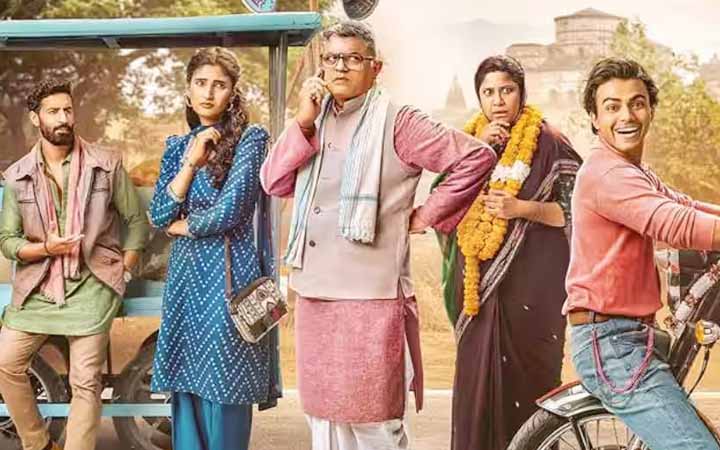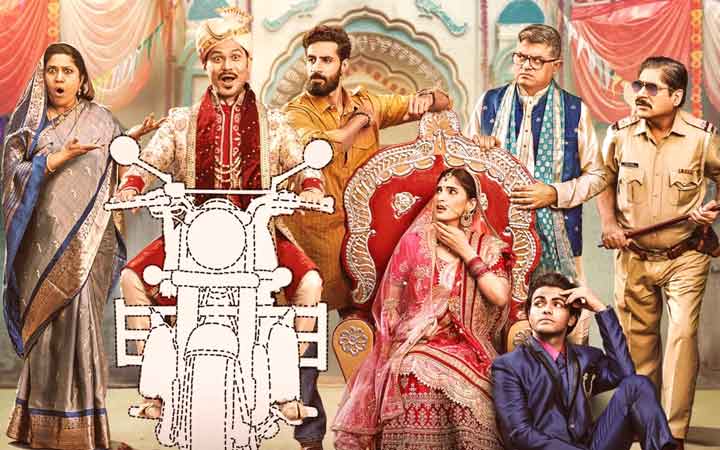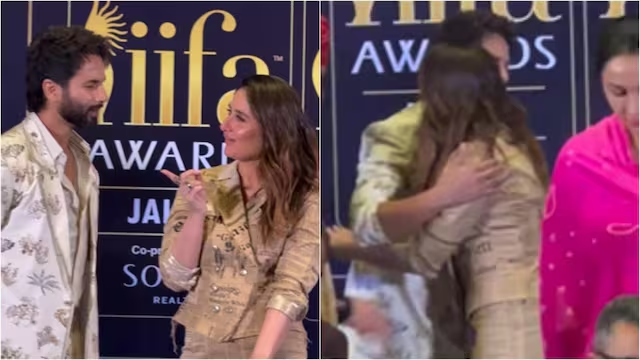Creators: Salona Bains Joshi, Shubh Shivdasani
Director: Sonam Nair
Writers: Chirag Garg, Avinash Dwivedi
Cast: Gajraj Rao, Sparsh Shrivastava, Shivani Raghuvanshi, Bhuvan Arora, Yashpal Sharma, Renuka Shahane
Streaming on: Amazon Prime Video
A Familiar Village, A Familiar Story

When Panchayat arrived in 2020, it redefined how Indian audiences perceived rural dramedies. It was simple yet profound, humorous yet emotional, capturing the heart of small-town India with a rare authenticity. But with any major success comes the inevitable wave of imitations, and Dupahiya feels like the first true successor—or rather, an attempt at one.
Set in the fictional village of Dhadakpur, Bihar, Dupahiya looks, sounds, and even feels like Panchayat. The production design, cinematography, and storytelling approach mirror its predecessor to the point where it seems like Prime Video is crafting its own ‘Cutesy Village Universe’—the way Yash Raj Films built its Spy Universe. Panchayat had a water tank as a symbolic centerpiece; Dupahiya has a well. The aerial drone shots capturing the village landscape, the dry-humor-laced dialogues, and the warm but quirky ensemble of characters make it feel like a deliberate extension of the Panchayat world.
However, while Panchayat was built on organic moments and slice-of-life storytelling, Dupahiya leans into plot-driven chaos, shifting its tone from subtle dramedy to exaggerated comedy-of-errors.
A Solid Cast That Deserves Better

One of Dupahiya’s biggest strengths is its stellar ensemble cast.
- Gajraj Rao plays a respected local teacher, a man whose traditional wisdom often clashes with the modern aspirations of his children.
- Renuka Shahane is the village’s sarpanch, a proud leader facing an upcoming election.
- Yashpal Sharma plays a lazy, morally ambiguous cop, whose arc is central to the story.
The younger characters drive much of the narrative:
- Roshni (Shivani Raghuvanshi) – The spunky daughter of the teacher, caught between her personal dreams and societal expectations.
- Bhugol (Sparsh Shrivastava) – Roshni’s Instagram-addicted brother, who dreams of making it big in Mumbai as an actor.
- Tipu (Samarth Mohar) – Bhugol’s best friend, a classic village sidekick.
- Amavas (Bhuvan Arora) – Roshni’s macho ex-boyfriend, with whom she shares a complicated history.
- Nirmal (Komal Kushwaha) – The sarpanch’s daughter, whose dark skin becomes a major plot point, highlighting the village’s regressive beauty standards.
Sparsh Shrivastava, fresh off his success in Laapataa Ladies, is a standout. His jittery, expressive screen presence makes Bhugol the most interesting character, even though the show doesn’t fully commit to him as the protagonist. His dream of becoming a Bollywood actor is one of the few genuinely heartfelt aspects of the series, making you wish the entire story revolved around him.
A Comedy-of-Errors That Overcomplicates Itself

The core plot of Dupahiya revolves around the theft of an expensive motorbike, given as dowry for Roshni’s wedding. Dhadakpur has prided itself on being a crime-free village for 25 years, and this theft shatters that reputation. The villagers, rather than reporting the crime, try to cover it up to avoid embarrassment.
What follows is a series of mishaps and mini-adventures:
- Gajraj Rao’s character and the lazy cop get entangled in a cat-and-mouse game as they try to recover the stolen bike.
- The groom, obsessed with his bike more than his bride, becomes the center of unwanted attention.
- Bhugol and Amavas, in a desperate attempt to replace the stolen bike, get mixed up with owl-smuggling gangsters and shady second-hand bike dealers.
- Nirmal, fed up with society’s obsession with fair skin, embarks on a mission to raise money for laser skin-lightening treatment.
All of this is set against the backdrop of a political battle, as rival village leaders and nosy journalists see the stolen bike incident as an opportunity to challenge the sarpanch’s rule.
While this premise has potential, Dupahiya loses itself in unnecessary excess. It stretches a 90-minute comedy-of-errors film into a bloated 9-episode series, making it feel repetitive and forced.
Why Dupahiya Fails to Capture the Panchayat Magic

1. Forced Drama Instead of Organic Storytelling
Panchayat thrived on subtle, everyday humor and relatable moments. In contrast, Dupahiya overcomplicates things with flashbacks, musical montages, and over-the-top gags. There’s even an item-song-inspired dance sequence featuring two men in drag—a bizarre creative choice that feels entirely out of place.
2. Weak Emotional Payoffs
The father-son dynamic in Panchayat was deeply moving, but Dupahiya struggles to land its emotional moments. For example:
- The lazy cop’s sudden transformation into an honest officer feels unearned and rushed.
- The climactic wedding scene, where the once-boycotted family is suddenly embraced by the village, lacks proper buildup, making it fall flat.
- Roshni’s final outburst about gender roles and social expectations feels like a generic Bollywood-style speech rather than an organic turning point.
3. Missed Opportunities for Social Commentary
Dupahiya introduces themes of dowry, patriarchy, colorism, and rural superstition, but it fails to explore them meaningfully. The village is proud of its “crime-free” status, yet it perpetuates deeply problematic customs. Instead of delving into this irony, the show sidesteps the issue until the very last episode, where a few token resolutions are crammed in at the last minute.
4. Too Much World-Rebuilding, Not Enough World-Building
Rather than creating something fresh, Dupahiya spends too much time trying to fit into the Panchayat mold. It inherits its predecessor’s quirks—the dry humor, the quirky ensemble, the slow-burn charm—but fails to develop its own identity.
Final Verdict: A Decent Watch, But Not a Classic
While Dupahiya is not a bad show, it’s far from the next Panchayat. It has moments of brilliance—especially in Sparsh Shrivastava’s performance and some sharp cultural observations—but its reliance on forced humor, stretched-out storytelling, and superficial social commentary holds it back.
Had the show focused more on Bhugol’s journey or taken a more restrained, character-driven approach, it could have been a worthy successor to Panchayat. Instead, it settles for being a well-meaning remix of a vintage hit—catchy in parts, but ultimately unnecessary.
The only way Dupahiya can truly find its own voice? If Bhugol moves to Mumbai, only to go viral when celebrities and ex-cricketers start lecturing him about road safety and wearing helmets. Until then, the bike might as well take a hike.




Leave a Reply